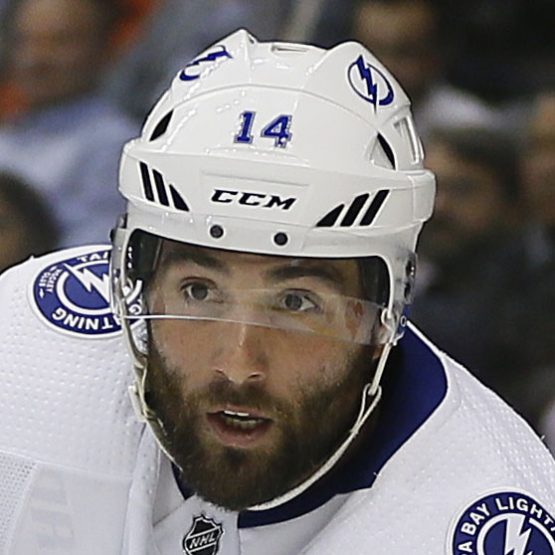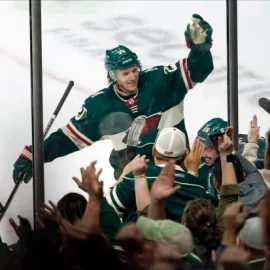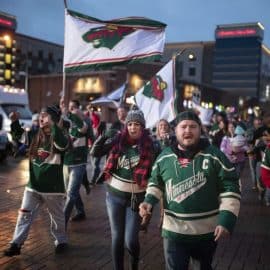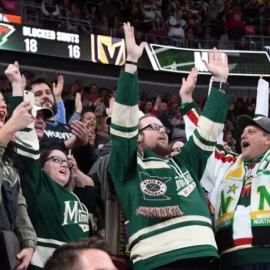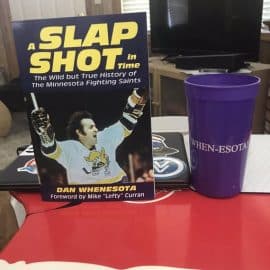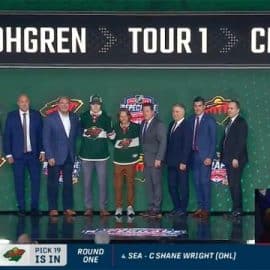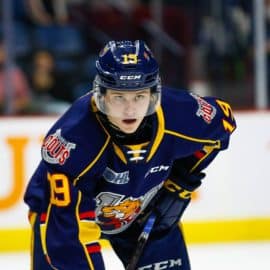A sign of the time of year for me is when I begin to get graduation party invitations. It is a sign of a school year almost finished and former students moving on to the next chapter of their lives whether its college, tech school, the military or something else altogether. In my day job, as a high school teacher its very close to crunch time for my students as there is little over a week left of school. That means big projects are close to being turned in and final exams are close to being taken. For students it means some stress and some mental sweat and perhaps a few tears as they suck it up and complete what they’re supposed to. For teachers it means bracing themselves for a massive amount of work to correct and grade as they get ready for summer. In some cases the students simply get a relief before they comeback next fall for others the grades possibly mean whether or not they graduate. Pretty intense stuff at times especially if a few percentage points can come between a diploma or not. A potential life can be changed by just a key stroke or two in the gradebook. I know it all goes with the job but I’ll certainly be glad when its behind me.
For the NHL, who just witnessed the Chicago Blackhawks sweep the San Jose Sharks Sunday afternoon to punch the first ticket to the Stanley Cup Finals its biggest and most important project of the season is about to conclude. As any teacher will tell you, only when all of the work is turned in can you really know what the final grade will be. In the case of the Minnesota Wild, all of their work for the 2009-10 season is turned in and now is the time to grade it with a level of objectivity without the bias of the closing weeks of the regular season such a recent memory. So what grades shall Minnesota’s players earn? Should Head Coach Todd Richards and the organization’s upper management be graded too?
So let’s start with the Wild’s bench boss.
Head Coach – Todd Richards
After a very abysmal start, the Wild recovered but at times Richards seemed to really be battling his team. Solid at home, horrendous on the road and terrible in the shootout the Wild had its opportunities to qualify for the post season but Richards never seemed to have the answer to fix its problems. One of his more questionable decisions was to hold optional practices late in the season as the team’s chances for the playoffs were still alive. Instead of waking the team up with a brutal practice ala Jacques Lemaire or Herb Brooks the team continued its apathetic play. Also, as the season ended when asked if poor line changes played a role into what went wrong with the season by Minneapolis Star Tribune‘s Wild beat writer Michael Russo, Richards downplayed it saying it wasn’t that big of a deal. Yet the facts speak for themselves as poor line changes plagued the team in numerous games so apparently the coach feels he has a level of infallibility that simply isn’t true. It is sort of disturbing to hear a coach deny something which was so painfully true and affected the team’s fortunes in far too many games. A coach’s first season is basically a free pass, but the second season is where fans and management expect to see tangible progress. If the team again struggles out of the gate I think Richards could find himself in hot water.
2009-10 Final Grade: C –
Wild General Manager – Chuck Fletcher
In retrospect it is clear the new general manager used the 2009-10 season to evaluate the strengths and weaknesses of the organization. He gave the various parts of the team a chance to win him over before he started to make changes. When the team struggled at the start he did not just sit back passively as Doug Risebrough would have done, he made trades. First for Chuck Kobasew and in his best personnel move of the season managed to parlay Benoit Pouliot for Guillaume Latendresse who went on to become the team’s leading goal scorer. Fletcher showed good initiative when he took a proactive role to sign college free agents Casey Wellman, Nate Prosser and Jared Palmer were solid steps towards re-stocking a nearly empty prospect pool. When those moves ultimately proved to be not enough he was candid by saying he was disappointed but now realizes that the team has a lot of challenges ahead of it and he continued to make necessary changes by casting off ineffective members like Assistant General Manager Tommy Thompson and Hockey Operations Director Chris Snow. It wasn’t all perfect moves though, the signing of Marek Zidlicky to an expensive 3-year, $16 deal it seemed to ignore many of the skilled blueliners’ defensive failings. While most of the team’s salary cap unfriendly contracts were the product of the shortsightedness of Doug Risebrough he has an immense challenge ahead of him. Balancing a weakened fanbase, while giving them hope of better seasons to come will really be what the 2010-11 is about.
2009-10 Final Grade: B+
Now for the players, and in the interest of time and answering part of the question implied by the title, which is, does this team have enough to make the 2010-11 playoffs I’ll answer later.
Forwards:
The 2009-10 season was predicated on lots of very optimistic what “ifs” in order for Minnesota to qualify for the post-season. The team was hoping young forwards like Benoit Pouliot and James Sheppard would have breakout offensive seasons. You couldn’t even say Sheppard stumbled after a pathetic 6-point season, and Pouliot just never really found his groove and was traded. The Wild were hoping Pierre-Marc Bouchard would take off in the new more offensively friendly system. Instead, he gets knocked out in the team’s first game against Columbus and he never returned and is still not skating as he suffers the effects of post concussion symptoms. The Wild used the Long-Term Injury status to use the money that normally would’ve been used on Bouchard’s salary but so far the team seems to expect the Sherbrooke, Quebec-native to return next season.
Minnesota was left trying to fill the void in skill on its lineup; but another failing made itself obvious early on was a lack of team speed. Fletcther tried to address this by trading seldom used winger Craig Weller, a 2nd round pick and prospect Alexander Fallstrom for Chuck Kobasew. Kobasew had a limited impact due to injuries but he showed promise down the stretch and seems to be a fairly good fit for Todd Richards‘ system. The workhorses for the Wild were the same as the ones the previous season with team captain Mikko Koivu leading the way and was helped by the slow but steady Andrew Brunette and the speedy grinding winger Antti Miettinen who did have a career season. Mikko Koivu led the team in points and is the team leader in every sense of the term, but he is not a naturally gifted goal scorer. Yet the real failing came from the team’s expensive acquisition Martin Havlat who failed in providing the offense that was lost with Marian Gaborik‘s departure. Too often early in the season, Havlat did not give the Wild a true second scoring line most nights and that forced Minnesota to lean heavily on Koivu’s line. The fact Havlat was a team worst -19 sure did not help either, and in far too many games he appeared to be uninspired and simply going through the motions. Until the Pouliot trade that brought Guillaume Latendresse to the team Havlat was a total non-factor. So with Latendresse an Restricted Free Agent due for a big raise and eating up most of what cap room the team has left, can he replicate what he did last season or even surpass it? Perhaps, but without question he’ll draw more attention next season than he did this year.
Youngster Casey Wellman demonstrated some great jump and seems to have great hockey sense but even though the Wild could use a player with his energy and flash-n-dash, his time would probably be best spent playing in Houston. Cal Clutterbuck provides plenty of hits but not a lot of offense and other role playing checkers like Robbie Earl and Andrew Ebbett give the team a little more speed but they’re not going to carry the offense anytime soon. Veteran Owen Nolan slipped a bit offensively and while the team has said it would like to keep him he is an unrestricted free agent and can make his own choice and there is a good possibility he may not be back.
In the enforcer role it is hard to get much better than to have the player voted as the most intimidating in the league by the Hockey News. The problem is while Derek Boogaard is about as fiercesome as it gets when he drops the gloves, he has been doing that less and less not to mention he will give you little to no offensive contribution. In today’s NHL, the league’s enforcers must show an ability to chip in offensively otherwise its pretty tough to justify the roster spot especially if you plan on playing him around 5 minutes a game at the most. I strongly believe that Boogaard’s contributions as a hitter an intimidator help a lot for a team that is pretty mild and soft throughout most of its lineup, and he also does a good job at drawing his fair share of penalties. To that point he also gets his fair share of unwarranted calls because of the officials perception of some of his hits. Yet the rest of the league has found out the best way to eliminate Boogaard’s contributions is to not challenge him and allow him to boost the Wild’s (or their crowd’s) momentum by giving him a fight. Even some of the tougher players in the league will more or less simply try to goad Boogaard into a roughing call rather than dropping the gloves and risk becoming his latest hockey fight highlight. Boogaard is an unrestricted free agent this summer, and at his current salary of $1.25 million per season he is a very expensive bit player for an enforcer who gives you no offensive contribution. Those close to the team seem to think Boogaard perhaps will be tendered a reduced contract but no doubt the UFA Boogaard will test free agency knowing that at least one team out there will likely want his ability to intimidate. Minnesota will not miss him offensively at all, but there is the unwritten accountability factor he could provide if a team tried to take liberties with Wild players and that could be sorely missed as the organization’s “goon in training” Matt Kassian is just not even close to being NHL ready.
So will the Wild have enough firepower to make the playoffs next season? No, not by the way I see it. Too many ‘ifs’ once again pervade the team’s offensive hopes. Minnesota just does not have the cap space to add a significant enough offensive player to really allow the offense to take off. Minnesota just does not have the reliable go-to scorer that you find on the league’s elite teams. The Wild will again hope to score by committee and wish for the best, hardly a solid recipe for success.
2009-10 Final Grade: C
Defenseman:
If there is one thing that has taken place the last few years is the team has spent far more money attempting to enhance its blueline, but despite the large (proportionally speaking) payroll it now consumes it would be tough to argue the organization is getting a lot for its money. Sure, there is Greg Zanon who is an absolute bargain as the team’s most consistent defenseman at just $1.7 million this year and then $2 million per in 2010-11 and $2.1 million in 2011-12. Zanon was a complete workhorse, logging lots of ice time and continues to be a rock as one of the league’s best shot blockers. Despite his propensity to stand in front of shots he remained remarkably durable even though you could tell he was paying a heavy physical toll to do so. Yet apart from Zanon the “bargain” in Wild’s blueline vanishes into a bevy of overpaid and disappointing defenseman. Nick Schultz, Minnesota’s most veteran blueliner and a former 2nd round pick from 2000 looks to be very expensive in comparison to Zanon as he provides similar offensive contributions for a much higher pricetag of $3.6 million for the next 4 years.
In a different tangent, Brent Burns some may argue could be called a “bargain” (at $3.8 million) if he ever learns to find a good balance to being aggressive and joining the rush offensively and yet still taking care of business effectively in his own end. Notice the use of the word if? That is because the last two seasons have been two steps backward for the highly touted (albeit a bit more muted now) athletic defenseman who can at times give you glimpses of outstanding skill but also can get carried away and hurt his team with some terrible turnovers or poor on-ice decisions. I know I may be in the minority but at the beginning of the season I was very annoyed watching Burns try to morph into Bobby Orr everytime he touched the puck and attempt to go end-to-end on a one-man rush. He got banged up and again struggled with concussion symptoms for which he became one of the first NHL’ers to sport the new Mark Messier designed M-11 helmet. When he returned he seemed to hold himself back a bit from trying to do too much, but by the end of the season he was back to his high risk game which is not a good thing. While Brent Burns is no doubt an extremely gifted athlete, his hockey skills just have not caught up to that athleticism and until they do it is in his and the team’s best interest if he sticks to a more simplified game. You may wear #8 Brent Burns but Drew Doughty you are not, not yet at least.
In perhaps Chuck Fletcher’s lone move which it was a bit of a head scratcher was the expensive extension levied out to Czech-born blueliner Marek Zidlicky. Yes, Zidlicky was one of the better offensive defenseman in the league in terms of points but if you really look at his statistics you’ll see a lot of 2nd assists and you’ll also notice he was a -16. Now being back on the team at $4 million per season you have to question the sense of keeping a blueliner who even though he has some good skill is also a proven defensive liability. I still remember when Nashville fans told me that he’d drive me crazy after a while and I can see precisely why they say that as his high risk-high reward game involves some great offensive plays but far more horrendous lapses in judgement in his own zone that end up in the back of your net. In that same realm you may have to question the wisdom of adding disappointing blueliner Cam Barker and his $3,000,000 salary to a guy who still seems to be finding his game. Sure, the team didn’t expect to sign Kim Johnsson and were a bit disappointed in the progress of 2009 1st rounder Nick Leddy but to add another $3 million blueliner who is notoriously inconsistent does not seem to be a wise move especially when you desperately need to improve your scoring at the forward position.
If there is any other bright spot not named Greg Zanon is the team is deepest in its blueline prospects. Marco Scandella seems to be a blueliner with a lot of potential as a two-way defenseman. He was a bright spot playing on the top pair for Team Canada at this year’s U-20 World Junior Championships. For Port McNeill, British Columbia-born defenseman Clayton Stoner its now or never. The big, physical defenseman earned a contract after his first limited stint with the big club but suffered a groin injury and never returned. Stoner has been a bit plagued by injuries since turning pro 5 years ago but he could add an element of tenacity that was lacking on Minnesota’s blueline all last season, yet his ability to stay healthy may determine his NHL future more than anything else as he has nothing more to learn in the AHL. Toss in fellow defensive prospects Nate Prosser who showed incredible poise in his small 3-game stint and Maxim Noreau who has been an offensive dynamo for the team’s AHL affiliate in Houston and the safe and steady big defenseman Justin Falk you can see the Wild certainly have some viable options for the 6th and 7th defenseman spot.
So what does this mean for 2010-11? With most of the roster spots filled and the salary already committed it is tough to imagine there would be a lot of changes to the Wild’s defense this summer. Minnesota’s defense should be a huge area of strength considering how much money they’ve spent but on too many nights the defense was a liability and even the departures of below-average defenseman / above average pugilist John Scott and NHL journeyman Shane Hnidy won’t be missed much the team will likely have an inexperienced 6th and 7th defenseman and I cannot think of too many occasions where that has been an advantageous situation for any team. I really believe the Wild’s defense need to be reeled back in a bit, and even though Todd Richards, a former offensive defenseman himself likes the thought of blueliners joining the rush Minnesota found itself giving up the odd man rush far too many times. While having defenseman joining the rush can make for interesting 4-on-2 or 4-on-1 scenarios it is only good if the team capitalizes on those chances but all too often we didn’t and it turned into an outstanding scoring opportunity for the opposition.
2009-10 Final Grade: C
Goaltenders:
Throughout most of the Wild’s history, if you can say the team has been traditionally very strong is between the pipes. From Manny Fernandez, to Dwayne Roloson to now Niklas Backstrom the Wild have typically had solid play from its goalie, which has been rather crucial considering the fact most Wild teams are not anything close to being an offensive juggernaut. This season was a challenging year for Niklas Backstrom who showed more inconsistency than normal and early on struggled to make the game-saving stops when the team suffered a defensive breakdown. While it may seem as though I’m picking on his play I am really not. I know that there certainly were a few goals he more or less was powerless to stop but he also gave up more ‘soft’ goals than Wild fans are accustomed to seeing. Backstrom also faced more traffic near his crease and at times it seemed to bother the normally calm Helsinki-native. Unfortunately, an inconsistent Backstrom sometimes spelt doom for the Wild even when they seemed to be capable of creating offense. For the most part and as is the case with most of the league, giving up a quick 3-goal lead is devastating and Minnesota just did not have the firepower to recover most nights. Backstrom was in the first season of his sizeable increase in contract at $6 million per season for the next 3 years. With the Wild not really in a position to add much more offense to its lineup it will mean Backstrom will again have to play very well in order for Minnesota to have a chance. Nothing too unusual for the Wild per se, but now Backstrom is getting less defensive support as the team adopts a more aggressive forecheck and uses less of the neutral zone trap. Backstrom still ended up with respectable totals but they’re was a significant difference from his seasons under coach Jacques Lemaire.
The contentious issue is with the backup goaltender spot where Josh Harding has been patiently waiting for his opportunity but since he’s set to become a restricted free agent there is speculation the team will do whatever it can to move him. Not because they’re disappointed in Harding’s play, in fact the Regina, Saskatchewan native was quite good down the stretch but rather they’d like a cheaper backup to conserve money to be able to snag more of an impact forward via free agency. So if Harding leaves, who will the Wild go to as a backup? With promising young goalie prospect Matthew Hackett in the system finding more of a temporary and cheaper backup looks like a definite possibility. There will be a number of quality goaltenders available but will they be cheap enough? Or will Minnesota hand over the backup duties to young and unorthodox Russian goaltender Anton Khudobin who became a bit of a cult classic in the State of Hockey after delivering two wins in a two-game stint during a critical homestand last winter? Its tough to say but with only one full AHL season under his belt I think the Wild will be looking for a free agent to fill that role if Harding is dealt. Will goaltending be good enough in 2010-11? I think it will be adequate but goal support really will ultimately determine just how successful they are. If the goals don’t show up then I think it will be very difficult for the goaltenders to be relied upon to steal games.
2009-10 Final Grade: B
So do the Wild have enough to make the 2010-11 playoffs? As of right now I’d say no. The team is still built on way too many if’s to consider them to be a viable contender for the playoffs. Yes, the playoffs; notice I did not say a viable contender for the Stanley Cup. Minnesota leaned heavily on if’s this year and look how it turned out. When you’re in year #3 of saying “James Sheppard has to step it up” you’re not even considered overly optimistic, you’re in denial. I do not expect the Wild to be a big mover and shaker this summer, their cap flexibility is negligable due to the number of long contracts this team already carries. Either way, you have no doubt any move the team makes the team will spin it to make the addition of another 3rd liner is as though we’re adding 1st line talent. Wild fans, expect more of the same and I don’t expect you to like it either but that’s way I see it playing out. If the Wild were a college student we’d be pretty close to academic probation.
Add The Sports Daily to your Google News Feed!
